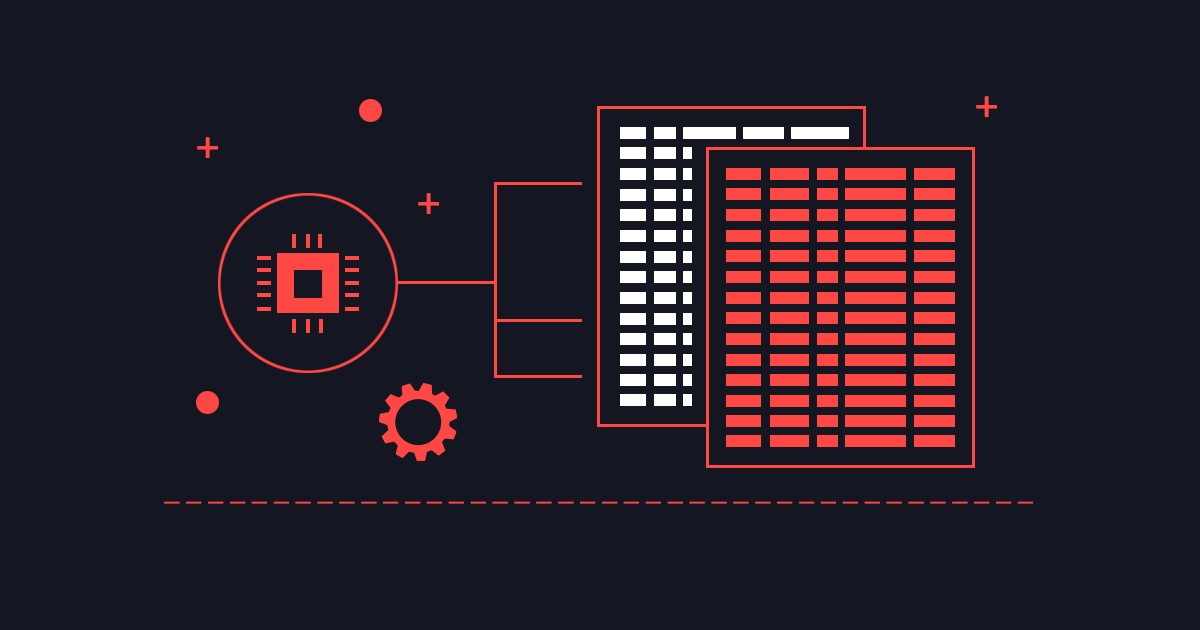LLMs get better at working with spreadsheet data
Read Time 4 mins | Written by: Cole

Spreadsheets are everywhere in the business world — used for everything from financial modeling to inventory management. Their flexibility and familiarity make them indispensable tools.
LLMs have shown remarkable capabilities in understanding and generating human-like text. But when it comes to spreadsheets – with their unique two-dimensional structure and complex formatting – even advanced LLMs struggle.
The researchers behind SPREADSHEETLLM recognized this gap and found a way to make LLMs better at working with spreadsheet data. It is 12.3% better than the most advanced LLMs at analyzing complex spreadsheets.
Maybe more importantly, the SPREADSHEETLLM uses significantly less tokens to represent spreadsheets – resulting in a 96% reduction in processing costs for their test set.
Here’s how it works.
SPREADSHEETLLM — a leap forward in AI-powered data analysis
At the heart of SPREADSHEETLLM is a new encoding method called SHEETCOMPRESSOR. This approach tackles the primary challenges that have held back AI in spreadsheet processing — the sheer size of data grids, the flexibility of layouts, and the variety of formatting options.
SHEETCOMPRESSOR employs three key techniques:
- Structural-anchor-based extraction — This method identifies key areas of the spreadsheet that are most informative about its structure, effectively creating a "skeleton" of the data.
- Inverted-index translation — By reorganizing how cell data is represented, this technique dramatically reduces redundancy in the encoded information.
- Data-format-aware aggregation — This approach groups similar data types and formats, further streamlining the representation of the spreadsheet.
On test datasets, SHEETCOMPRESSOR achieved a 25x compression ratio. In practical terms, this means that AI models can now efficiently process spreadsheets that were previously too large to handle.
Implications for business intelligence and data analysis
The potential impact of this technology on business operations is significant. Here are some key areas where SPREADSHEETLLM could make a difference:
- Automated data extraction — With a 12.3% improvement over previous state-of-the-art methods in spreadsheet table detection, businesses could automate more steps in the process of identifying and extracting relevant data from complex spreadsheets.
- Enhanced question answering — The study demonstrated the effectiveness of their Chain of Spreadsheet (CoS) method for spreadsheet QA tasks. This could enable more intuitive interactions with spreadsheet data, allowing non-technical staff to query complex datasets using natural language.
- Cost reduction — By significantly reducing the number of tokens needed to represent spreadsheet data, SPREADSHEETLLM could lead to substantial cost savings in AI-powered data analysis. The researchers reported a 96% reduction in processing costs for their test set.
- Scalability — The method showed particular promise in handling larger spreadsheets, which have traditionally been a bottleneck in data analysis pipelines. This could allow businesses to work with larger, more complex datasets without sacrificing processing speed or accuracy.
- Improved accessibility — By enabling AI models to better understand spreadsheet structures, this technology could make advanced data analysis tools more accessible to a wider range of users within an organization.
Real-world applications and future potential
Imagine a financial analyst who needs to quickly extract insights from hundreds of complex financial reports in spreadsheet format.
With SPREADSHEETLLM, they could use natural language queries to instantly pull relevant data, identify trends, and generate reports. Or consider a supply chain manager dealing with vast inventory spreadsheets across multiple locations. This technology could enable them to quickly identify discrepancies, forecast needs, and optimize stock levels with unprecedented ease and accuracy.
The potential applications extend across industries:
- In healthcare, it could streamline the analysis of patient data spreadsheets, improving diagnostic processes and treatment planning.
- In retail, it could enhance inventory management and sales forecasting by making large-scale data analysis more efficient.
- In manufacturing, it could optimize production schedules by allowing for more sophisticated analysis of complex, multi-variable datasets.
As the technology evolves, we might see more advanced features like automated data cleaning, anomaly detection, and even AI-driven data visualization recommendations.
SPREADSHEETLLM challenges and future research
Despite its promising results, SPREADSHEETLLM is not without limitations. The researchers noted that their method still struggles with understanding certain spreadsheet formats and may not fully capture all the nuances of complex layouts.
The technology's reliance on LLMs means that it inherits some of the challenges associated with these AI systems – like potential biases and the need for significant computational resources.
Future research in this area will likely focus on refining the encoding methods to capture even more nuanced spreadsheet structures. That could improve the model's understanding of diverse data types and formats, and develop more efficient ways to process extremely large spreadsheets.
Here’s a link to the full paper on SPREADSHEETLLM>
Want to hire AI experts to build your LLMs?s
To build cost-effective LLMs with the latest tech stack you need AI experts. Hiring internally could take 6-18 months but you need to start building AI solutions now, not next year. That’s why Codingscape exists.
We can assemble a senior AI software engineering team for you in 4-6 weeks. It’ll be faster to get started, more cost-efficient than internal hiring, and we’ll deliver high-quality results quickly. We’ve been busy building LLM capabilities for our partners and helping them accomplish their AI roadmaps in 2024.
Zappos, Twilio, and Veho are just a few companies that trust us to build their software and systems with a remote-first approach.
You can schedule a time to talk with us here. No hassle, no expectations, just answers.
Don't Miss
Another Update
new content is published

Cole
Cole is Codingscape's Content Marketing Strategist & Copywriter.
